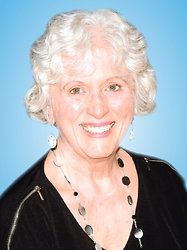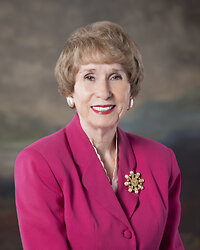"I didn't say it was your fault. I said I was going to blame you.'
It doesn't have to be our fault or another person's fault to get our blame.
While it is true that one of our first responses in a conflict is to blame someone else, it is also true that for many of us our first response is to blame ourselves.

As parents, it is so easy to blame ourselves for things that we are not responsible. While some of us need to be more accountable in raising our children, there are others of us that no matter what our children do (even when they are grown), we feel responsible. 'It is my fault that my son is doing-' We may even hear ourselves say, 'If I had it to do over again, I would -.' The truth is: we cannot take all the blame for how our children are living. We are not the only ones who influenced them. There are the peer group, other adults and the media. Someone said: 'If your children can blame you for who they are, then they are also capable of doing something about it.'
The truth is: we cannot take all the blame for how our children are living.
We are not the only ones
who influenced them.
Some of us belong to a segment of our population that seems most prone to blaming ourselves even when it was not our fault. We have a tendency to take responsibility for actions that aren't even ours. We can carry a lot of guilt and self-criticism because we have high expectations for what we believe is our responsibility. This select group that seems most susceptible is the first born. This does not mean that those in the other birth orders don't blame themselves. There are several reasons why we are most susceptible for blaming ourselves. We were left in charge of our younger siblings. We were made to feel responsible when our younger siblings misbehaved. The truth is we were a child ourselves with little control. It was a double bind for us because we not only got the anger from our younger siblings but also from our parents.
There are two main types of self-blame. The first is called behavioral self-blame. This is undeserved blame based on actions. Have you ever said, 'I should have seen what was going on and stopped it'? A friend might challenge that self-blame by saying, 'How can you blame yourself when you did not know it was happening?' Our response often is, 'I know but I still believe I should have known.' The second self blame is called the characterological self-blame. This is undeserved blame based on who we are. There is the belief that there is something inherently wrong with us, so we believe that we should feel guilty for being who we are. We will even sabotage our successes because of this belief.
Dr. William E. Austin is a licensed psychotherapist and holds a Doctor of Divinity degree. He is a therapist with Tidewater Pastoral Counseling Services . He is well known for his warmth and sense of humor. His book, Creating Our Safe Place - Articles on Healthy Relationships, can be purchased through www.amazon.com.
Tidewater Pastoral Counseling: 623-2700
CURRENT COLUMNS
Publisher’s Point 
Time To Moveby Jean Loxley-BarnardOn The Front Porch With You 
Memories of Homeby Rob LauerChildren First 
Dandelion Timeby Becky AdamsRelationships 
When Your Security Blanket is in the Dryerby Dr. Bill Austin

